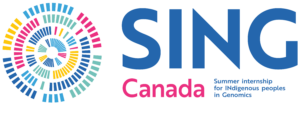Pipestone quarries, Minnesota, USA.
Photo: Kim TallBear from book-in-progress, Pipestone Materiality & Relations
Pipestone quarries, Minnesota, USA.
Photo: Kim TallBear from book-in-progress, Pipestone Materiality & Relations
Research

As Canada Research Chair in Indigenous Peoples, Technoscience, and Society, Dr. Kimberly Tallbear-Dauphine aims to reduce scientific and technological research biases and shape policy to support Indigenous peoples’ cultural and political self-determination. Through new curricula, research partnerships, publications and activities like social media, radio programs and podcasts, she and her research team aim to inform national, global and Indigenous self-governance and reconciliation work related to science and technology. They also collaborate with non-Indigenous scholars and institutions to build new knowledge about scientific self-governance and Indigenous well-being and elevate Indigenous scholars’ voices and work.

Tipi Confessions is not only sexy. Our audiences are reminded that sex is always also political. The Tipi Confessions enterprise also serves as a “research-creation laboratory” at the University of Alberta, Faculty of Native Studies. Our sexy performance laboratory is a space of creative experimentation and action research, both informed by and furthering existing research and teaching in decolonial and critical sexualities.

Dr. TallBear is one of the founding creators of the Summer internship for INdigenous peoples in Genomics (SING), which began in the USA with researchers working in collaboration with leaders in scientific and Indigenous Peoples’ communities to help address the low recruitment, support and matriculation of Indigenous students in post-secondary STEM paths. Since its inception in 2011, the SING program has grown internationally to become the SING Consortium, with programs in the USA (2011), Aotearoa/New Zealand (2016), Canada (2018), Australia (2019) and Mexico (2021).
Alumni of the SING program include Indigenous undergraduate, graduate, and post-doctoral students who are studying or interested in the Science, Technology, Engineering, and Math (STEM) fields. We have also had participants not enrolled in post-secondary education or without a science background; our program is open to any Indigenous person interested in and passionate about learning. Over 450 Indigenous participants have gone through the SING programs globally. Many of our alumni have graduated from various academic programs and are now working in careers across a broad spectrum of STEM fields.
From 2018 to 2024, Kim collaboratively ran SING Canada, which hosted four summer workshops and a global symposium. The program is currently restructuring to focus on community service projects to support and build internal capacity.


